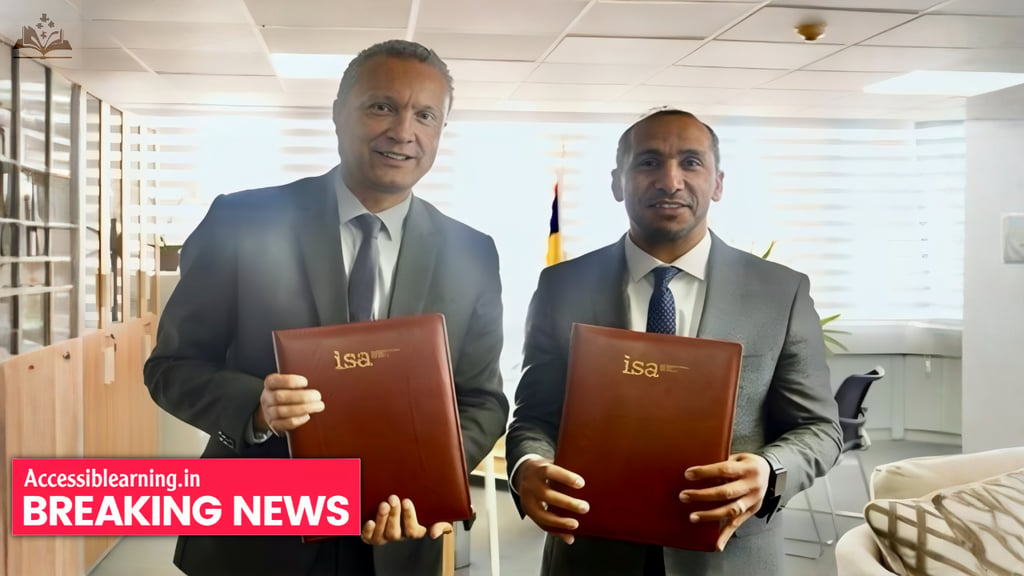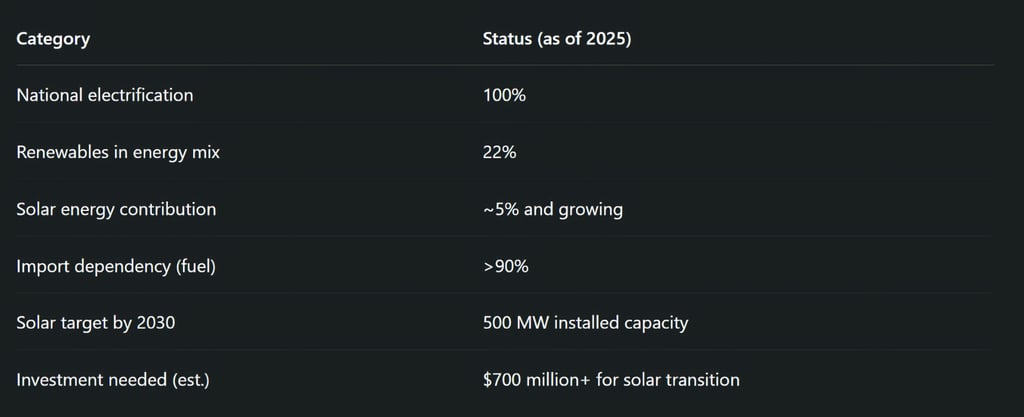
Mauritius Pioneers African Solar Collaboration by Signing ISA’s Country Partnership Framework
Mauritius has made history by becoming the first African country to sign the International Solar Alliance’s (ISA) Country Partnership Framework (CPF). This strategic move marks a milestone in Africa’s renewable energy efforts and highlights Mauritius’ commitment to clean energy solutions, setting the stage for a greener, more sustainable future for the island and the entire continent.
NEWS/CURRENT AFFAIRSCOMPANY/INDUSTRYGLOBAL ISSUES
Keshav Jha
4/16/20254 min read


In a transformative development for clean energy diplomacy, Mauritius has become the first African country to sign the Country Partnership Framework (CPF) with the International Solar Alliance (ISA). This milestone agreement, signed in April 2025, underscores Mauritius’ strategic commitment to accelerating solar energy deployment and reinforces Africa’s growing influence in the global renewable energy landscape.
This landmark deal is not just a national achievement—it’s a regional signal that Africa is ready to take bolder, more structured steps toward a clean energy revolution.
What is the ISA and Why is it a Game-Changer?
The International Solar Alliance (ISA) was launched during COP21 in Paris in 2015, co-initiated by India and France. Its primary objective is to mobilize $1 trillion in investments for solar energy by 2030, especially in countries that receive abundant sunlight but lack infrastructure and funding.
ISA is now composed of over 110 member countries, most of which lie between the Tropics of Cancer and Capricorn—regions with the highest solar potential on the planet. Through programs, funding support, and global partnerships, ISA bridges the gap between policy ambitions and project execution.
Why Mauritius is Leading the Way in Africa
Mauritius has long been recognized for its political stability, sound economic policies, and environmental foresight. As a Small Island Developing State (SIDS), the country is particularly vulnerable to the effects of climate change, including rising sea levels, coastal erosion, and unpredictable weather patterns. This reality has spurred Mauritius to become one of the most proactive nations in Africa regarding renewable energy.
Key Reasons for Mauritius’ Leadership
Ambitious Renewable Target: 60% of electricity from renewables by 2030
No fossil fuel reserves: Mauritius imports nearly all its fossil fuel, increasing vulnerability to global oil price shocks
High solar irradiance: Over 2,000 kWh/m²/year, making solar energy economically viable
Experience with ISA Programs: Already involved in various ISA initiatives, including Solar Pumps for Agriculture and Solar Mini-Grids
What is the Country Partnership Framework (CPF)?
The Country Partnership Framework (CPF) is ISA’s formal mechanism for deepened, customized collaboration with individual member nations. It’s a strategic action plan, co-created with the host country, tailored to accelerate solar adoption through finance, technology, capacity building, and policy guidance.
The CPF ensures:
A systematic approach to project implementation
Access to ISA's global ecosystem of investors, engineers, researchers, and policymakers
Alignment with local development goals and climate commitments
Timelines, targets, and progress tracking
In short, it transforms lofty goals into concrete solar pipelines ready for execution.


What the CPF Means for Mauritius in Practical Terms
Grid-Connected and Off-Grid Solar Deployment
Mauritius will develop a robust mix of solar infrastructure:
Utility-scale solar farms
Micro-grids and rooftop systems in remote and coastal areas
Battery storage integration for energy stability
Green Jobs and Workforce Upskilling
ISA will assist in developing a green workforce, supporting:
Local technician and engineer training
Scholarships and exchanges under ISA’s Solar Fellowships program
Vocational courses for solar entrepreneurs and MSMEs
Solar for Agriculture & Water
Projects like solar-powered irrigation, desalination, and cold storage facilities will help:
Improve food security
Reduce diesel dependence
Boost farmer income and sustainability
Private Sector Participation and Green Financing
Mauritius will benefit from:
Access to concessional financing through ISA’s blended finance facility
Support for PPP (Public-Private Partnership) models
Entry into global investment platforms including India’s Grid-Connected Solar Programme and the World Bank’s Scaling Solar initiative


Mauritius as a Beacon for SIDS and Africa
Mauritius’ CPF signing is expected to ignite a domino effect across Africa and other Small Island Developing States (SIDS). These countries share common challenges—small markets, high energy import costs, and climate exposure—but also share enormous untapped solar potential.
By becoming the first African country to formalize the CPF, Mauritius sends a message of:
Climate leadership
Policy maturity
Readiness to partner with global players for real impact
Voices from the Ground
ISA Director General, Dr. Ajay Mathur, remarked:
“Mauritius is showing the world how island nations can lead the clean energy charge. This CPF will unlock faster deployment of solar technologies, better financing, and more innovation tailored to local needs.”
Hon. Kavydass Ramano, Mauritius’ Environment Minister, said:
“This is not just about energy—it’s about sovereignty, resilience, and economic growth. Through this partnership, we are turning our climate challenges into solar opportunities.”
Global Implications
Mauritius signing the CPF strengthens:
South-South cooperation, especially between Africa and India
The credibility of ISA as a results-oriented platform
Regional peer learning through case studies and pilot projects
This partnership is expected to serve as a model for African nations like Kenya, Senegal, Rwanda, and Namibia, who are also accelerating solar adoption under ISA's guidance.
Mauritius’ historic signing of the Country Partnership Framework with the International Solar Alliance is more than a diplomatic milestone—it’s a blueprint for progress. It combines political will, environmental responsibility, and international cooperation in a way that truly matters.
By stepping forward, Mauritius is telling the world: climate-vulnerable doesn’t mean powerless. With the sun above and allies beside us, the future is not just bright—it’s solar.
Subscribe to our newsletter
All © Copyright reserved by Accessible-Learning
| Terms & Conditions
Knowledge is power. Learn with Us. 📚


